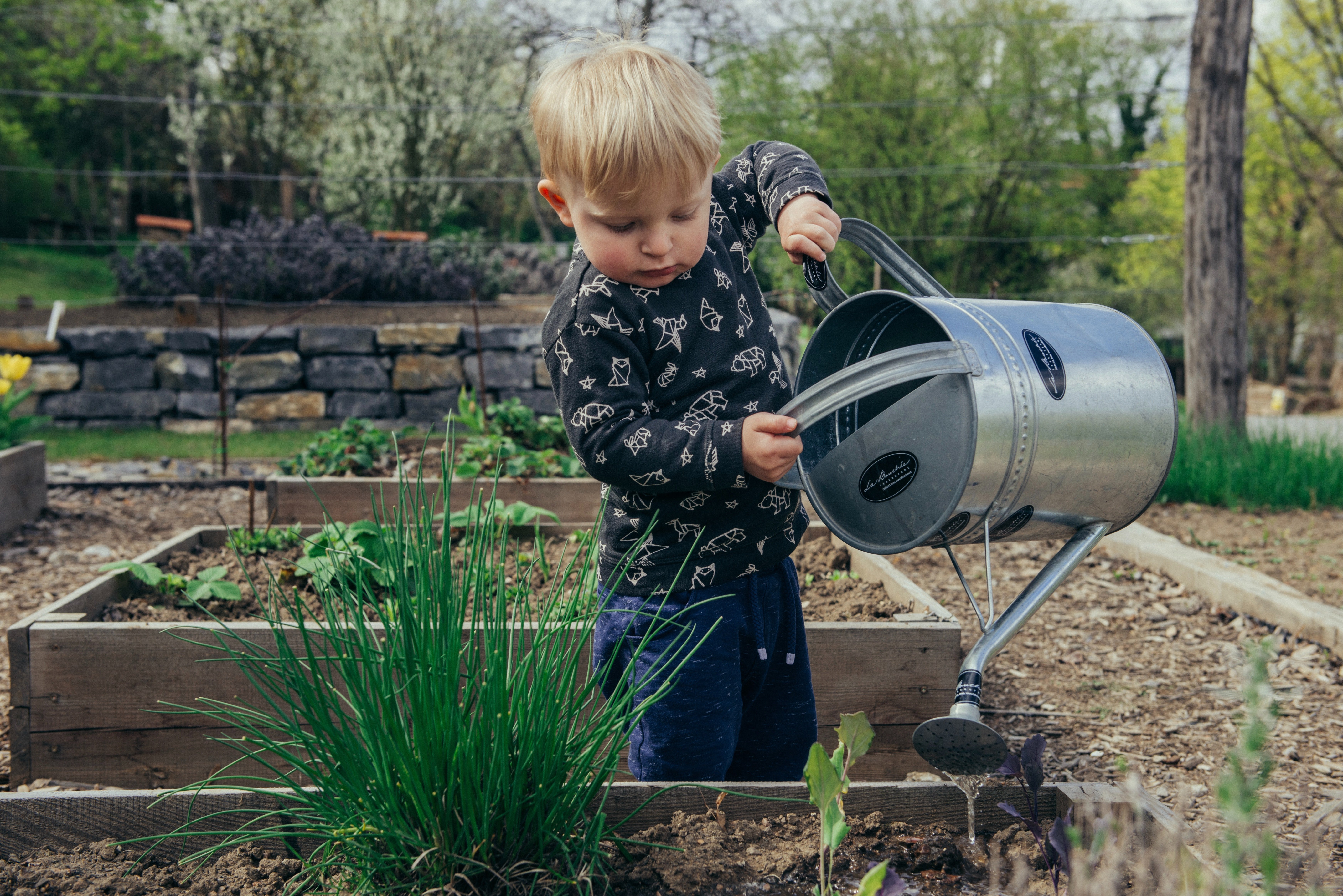How to Support Your Kids Through Puberty

Puberty’s tough — there’s no way around it. Maybe you have a strong memory of what it felt like to watch your body suddenly change and feel your hormones rage, or maybe you’ve tried your hardest to block these memories out (we don’t blame you). If you find yourself now faced with helping your own kids navigate puberty, your support can make a huge difference in helping them through it.
1. Start talking (early).
One of the best ways to help support your kids through puberty is to prepare them for what to expect ahead of time. Keep these conversations honest, open and age appropriate. For example, you don’t have to give your toddler a thorough, scientific rundown on the reproductive system, but if your kid comes to you with a question like “Why do you have a beard and I don’t?” you can answer their question directly and use it as an opportunity to start talking about growing up. It’s a good idea to leave the door open for further questions, too! These talks shouldn’t be one-and-done. Instead, they should continue to unfold as your kids grow and develop.
Puberty can seem overwhelming, but talking about it doesn’t have to be scary! Growing up is an exciting thing, and while it’s important to give your kids the facts about things like menstruation and physical development, you can also take this time to prepare them emotionally. Encourage your kids to look forward to the process by mentioning all the fun parts of getting older, like growing stronger, getting smarter, making new friends, and trying lots of new things.
2. Acknowledge what’s happening.
It’s hard to navigate growing up, but looking the other way to avoid confronting the changes that are happening (and probably happening fast) won’t halt the process. Even if your tween is less than thrilled to embrace the process of puberty, it’s important to acknowledge the changes that they’re starting to experience.
Use your empathy skills. It’s normal for some kids to feel insecure or concerned about all of the changes going on in their body, and even though you (as a grown-up and certified puberty survivor) know that these transitions will pass, being in the middle of them can feel really difficult. Try to show them as much compassion as you can if they’re having trouble coping. At the same time, make sure you level with them about how to handle the physical changes. Encourage good hygiene, healthy eating and sleeping habits, and teach them about things like how to use pads and tampons or how to shave.
3. Encourage positive body image.
Growth spurts, new body hair, breast development, acne — these changes are hard enough to deal with on their own, but puberty is full of new social pressures, too. Kids at this age are more aware of their appearances, and more likely to start comparing themselves to their peers. It’s not uncommon for kids in puberty to feel self-conscious about their changing bodies, especially if they’re developing sooner or later than their friends, but there’s lots you can do to make sure that these sensitive feelings don’t spiral.
You can start by assuring your child that what they’re going through is totally normal. Plus, puberty isn’t a one-size-fits-all process. If they haven’t started growing taller or sprouting armpit hair yet, there’s probably no need to worry! Encourage them to use positive self-talk. Help them break the cycle of self-criticism, and encourage them to acknowledge all of their strengths. Finally, rather than focusing on how their bodies look, encourage your kids to think about all that their bodies can do. Our bodies might allow us to kick soccer balls, spin in pirouettes, pump blood from our hearts to our fingertips, and use our brains to think and feel. When we consider the incredible things our bodies can do, how they might look seems to matter a lot less.
5. Support them through tough emotions.
Puberty isn’t just about hair sprouting where it’s never grown before and acne making a surprise appearance. Hormones, new expectations around grown-up behavior, and developing a sense of identity can lead to lots of emotional ups and downs. Even though they can be tough to manage, mood swings during puberty are totally typical.
One of the best things you can do to help your tween cope when emotions run high is to just be patient and stay calm in the midst of any outbursts. Try to be as understanding as you can about what they have on their plate right now, and think about how you felt when you were their age. Check in on their physical health — your sleep schedule and eating habits can have a significant impact on how you feel! Encourage them to get enough sleep at night and eat a healthy, balanced diet. Offer physical outlets, too, like playing sports or going for a walk. Staying active will not only keep your kids healthy, but can also improve their mood and keep their stress levels low. Finally, even if you think that every word you say to your kids is met with an eye roll, chances are your tweens still look up to for support and guidance. If something seems really wrong, encourage your child to open up about it. If they don’t feel like talking at the moment, assure them that you’ll always be there if they ever need your support. It’s helpful, too, to know how to distinguish normal teen angst from signs of depression.
6. Let them have space.
A big part of growing up is becoming more independent, and you may find your tweens and teens wanting more alone time as they pass through puberty. This part of getting older might give you some growing pains alongside your child. It can be tough to feel like one day you were teaching your little one how to tie their shoes, and the next they’re shutting themselves in their rooms.
This is totally normal, though, and it’s important to let your kids have more privacy as they grow up. Start knocking before you enter their bedrooms, and be prepared to leave the room at the doctor’s office when your kids reach their teenage years so they can talk privately to your provider. If your kids start exploring their self-expression, be as supportive as you can. Encourage them to try out new styles and hobbies to find out what they like (even if you think they might cringe at their old photos later).
7. Take care of yourself!
Puberty isn’t only tough on your growing kids; it can be challenging for you as a parent, too. Take some time to reflect on how you’re handling things, talk to a trusted friend if things get tough, and make sure you’re staying on top of your own mental health.
And for more tips on talking to kids about puberty, check out maro parents.

